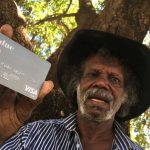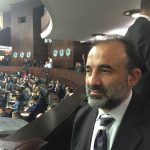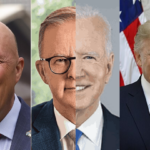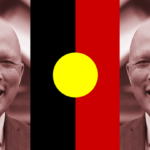Drug Policing Causes Most of the Harms: An Interview With Former Police Sergeant Greg Denham
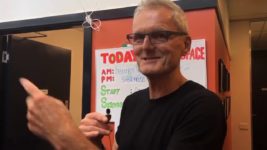
Last August marked the 50th anniversary of one of the most significant music festivals of all time, Woodstock. The four day event involved the coming together of close to half a million people, and as is well-known, the hippies that attended indulged in illicit substances quite liberally.
But, despite these numbers, there were only twelve police officers present at the event, notes Melbourne-based harm reduction advocate Greg Denham. And in a recent opinion piece, he further points out that of the two deaths that occurred at the festival, only one was drug-related.
Now contrast this with last summer’s NSW music festival season. Each of the numerous events involved saturation policing, drug dogs galore and mass strip searches. And even with the huge police presence on the ground, five people ended up dying in drug-related circumstances.
Denham points out that what’s directly led to the almost war-like deployment of Australian authorities at events today, is that Nixon launched the drug war in 1971, just two years after Woodstock. And this has involved a huge intensification of heavy-handed drug law enforcement.
Peer-based education
The interesting thing about Denham is that unlike many in the field of harm reduction, he doesn’t have a medical background. In fact, he spent 17 years as a police officer in both Victoria and Queensland. And one might say, he learnt on the frontline that drug law enforcement doesn’t work.
In his recent piece on festival safety, he makes reference to the famous warning that Woodstock lighting engineer Chip Monck made over the loudspeaker at the event warning the crowd to avoid the “brown acid” that was circulating, as it wasn’t any good.
This was an example of community-based harm reduction knowledge sharing that kept people safe from dodgy drugs. No one back then was absurd enough to suggest that festivalgoers completely refrain from taking illicit substances, as Gladys Berejiklian wasn’t in attendance.
Indeed, Denham contrasts the 1969 festival drug alerts with what he’s learnt about the 2017 overdose deaths on Melbourne’s Chapel Street. Licensees have informed him that local police were well-aware there was a bad batch of drugs doing the rounds, but chose not to warn the public.
Zero tolerance kills
A former Victoria police senior sergeant, Denham became well-aware on the job that the huge hauls police make have basically no effect on drug availability on the streets. And he now asserts that a return to a communal, educative and non-destructive way of dealing with drug use is necessary.
Denham is the Australian representative for Law Enforcement Action Partnership (LEAP), which is an international organisation comprised of both current and former police officers, advocating for an end to drug prohibition and the establishment of a legal and regulated market.
Sydney Criminal Lawyers spoke to Mr Denham about how it came to be that over the last two decades that the politically-sponsored saturation policing of events has gotten to the point that its presence is actually causing fatalities, as the NSW coroner has recently documented.
Up here in Sydney, the policing of music festivals has been out of hand for quite some time now. And as the campaign against it has grown, NSW police has only doubled down on its stance.
In a recent opinion piece, you paint a similar picture south of the border.
Greg, broadly-speaking, how would you describe the way Victorian authorities are taking to policing what are mainly youth events, like festivals?
We’ve known for quite some time that police see these events in a way which demonstrates that they’re going to use the maximum resources possible, because these events are opportunities for police to have a show of force in terms of policing the drug market.
It’s really targeting people who we might be described as “low-hanging fruit”. Police saturate these events. They have a strong show of force. They have all their resources available and they make lots of arrests.
It’s a way in which police can demonstrate to the wider community that they’re still trying to arrest their way out of the drug issue. Police see this as one of those opportunities where they can really focus on the demand side.
Over the last couple of years, police have been particularly critical of people who use recreational or social drugs and blaming them for the drug problem.
They’ve been blaming them for drug trafficking, saying that if they didn’t use drugs, then there would be no drug trafficking issue.
In many respects, this is a way for police to get back at those people. They can really demonstrate to them that they can’t ignore what police say and they have to take them seriously. And in this way, they have a captive audience to do that.
But, people who go to these events are really in a situation where they can’t avoid – or it’s very difficult to avoid – police detection. So, this is a very real way that police can demonstrate their determination to stop people using drugs.
You’ve said that the revelations of the national inquiry into the case of criminal defence lawyer turned police informant Nicola Gobbo exemplify your concerns about how Victoria police are going about the enforcing of drug prohibition. Can you expand on that?
The Gobbo Royal Commission makes clear that police have been determined again to use their powers in an appalling way and evade a fundamental premise of the criminal justice system, in order to justify their determination to win the war on drugs.
The police have been acting in a manner where the end justifies the means. And you’re either with us or against us.
For them to be doing this, has seen the putting aside of concerns about how this will impact upon the justice system, as well as putting aside any levels of integrity and taking an approach that disregards the principles of justice.
They’ve acted in a way that I believe has brought the police force down in terms of public respect.
So, again, this is a demonstration that police are so determined to win the war on drugs that they’re prepared to go to any steps to do so. Whether that be at music festivals, public places, or in this case, with Gobbo.
We’re hearing police at this commission justifying what they’ve been doing, despite the fact that it’s clear – and it has already been stated – that they acted in an appalling way. So, in terms of policing the drug market, they’ve gotten out of hand.
They’re really acting in unregulated and unrestricted ways. They lack scrutiny. They lack openness and transparency. And they do so, in a way that indicates that they’re unconcerned about the means of how they get the result, as long as they get it.
Greg, it kept going through my head as you were referring to the Gobbo inquiry that you could just as easily be describing the escalation of strip search use in NSW, as well as the justifications being given for it.
Sure. It’s exactly the same. And this has been brought about because over the last 20 years, the connection between government and policing has almost become a situation where they’re feeding off each other.
It’s a symbiotic relationship, where governments are reluctant to take on police over their actions, because they believe it’s important to have police support and it’s just as important to have the support of police unions.
Over the last couple of decades, we’ve seen an increase in the influence of the police union on the Victorian government. The police union can really respond and react in a negative way towards government, and they’ve done that in the past.
It’s also beneficial for government to have the support of the police force, because governments are determined to ensure that they keep law and order issues a focus in the minds of the community.
So, by giving police basically everything they want in terms of resources, powers, numbers and equipment, it’s also good for politicians.
When we hear of statements being made by the commissioner of NSW about striking fear into people, politicians like to hear that, because there’s a certain element of the fear factor that politicians like to use. And they use that in regard to refugees and other issues in the community.
The relationship between government and policing has become mutually beneficial over the last couple of decades. And unfortunately, the result of that is we don’t live in a safer community.
We probably live in a less safe community due to putting so many resources into policing, the courts and prisons, where that money should be directed towards, particularly in the case of health, prevention programs.
But, politically, governments want to keep police very close, and use them as a political tool. So, now police have become political servants. They’re no longer public servants. They are political servants.
You’ve described what you’ve just been discussing as “the current crisis of confidence in policing”. And you’ve explained how in the Victorian setting this gradually developed over a number of decades. Can you give us a rundown on how you see it?
We’ve seen that develop from the mid-90s onwards, where the policing in Victoria became very politically active.
They started to protest and conduct a range of targeted events, activities and other types of strategies around undermining the Victorian government, when at this time, there was a push to reduce the number of police.
Consequently, at both the state and federal level since then, we’ve seen governments really bend over backwards to keep police happy.
They know if you don’t have a happy police force, they can really work against you, as in undermining the potential for public safety. That was particularly so in mid-90s campaigns, where it was claimed that cutting police numbers would threaten public safety.
Governments have been very reluctant to take on police unions in particular, as they’re very powerful politically. And it’s also interesting to note that when it comes to public comments on policing matters – particularly operational – it’s now the police unions that are making all the commentary on them, not police command.
This says to me that police unions have become more powerful than police commands. They’re the ones who set the tone and the agenda when it comes to public commentary on policing.
And it’s a real worry that’s developed over the last couple of decades, because it should be police commands that are leading the way and showing direction.
But, it’s now the police unions doing this. And their focus is really on getting more resources and powers for police. Not supporting other public programs. We see police now focusing on public security issues, rather than the underlying issues that drive crime.
In terms of the political situation, we’re now at a point where police unions are probably more powerful than the police commands themselves. They’re taking the lead. They make good media. They seem to be the ones that people are listening to. And that’s a real pity.
You’ve emphasised the idea that police need “to be seen to be doing something”. There are a lot of people who make that point. And as you’ve said, an excellent way to do this is by combating illicit substances.
But, taking down powerful drug networks provides a much better photo opportunity than hassling 18 year olds on a night out. In your opinion, why over recent years, have we seen a massive focus on festival law enforcement?
As I said before, it’s a perfect opportunity for police to demonstrate in a way that grabs a lot of media attention and sends a direct message that in their belief, people shouldn’t be using drugs.
They’ve made statements over the last couple of years about not supporting safety around illicit drugs, because all of them are dangerous and therefore, they refuse to disseminate information about the potential risks of illicit drug use.
A couple of years ago, in Chapel Street in Prahran, when they knew there was a bad batch of a certain type of drug on the streets, they didn’t alert or warn anyone and consequently three people died.
So, their belief is they don’t have any other responsibility than to enforce the law. And the way in which they can get the most exposure and bang for their buck is by policing events, such as music festivals, so they can display that show of strength, even though it doesn’t really work, because people are still going to take drugs.
People have always taken drugs. And in fact, the majority of people who take drugs do so relatively safely. I would argue that it’s the policing of the drug market that causes more harm, than the drugs themselves.
So, they’re very limited in their scope, when it comes to understanding the drug market, and what drives people to take drugs. And what we need to be focusing on is harm minimisation approaches, not harm maximisation approaches, which is what the police now seem very focused on.
But, is there an aspect to this, where those other photo opportunities – busting drug kingpins – is a much more difficult task to achieve?
We recently saw a huge opportunity with the biggest ever seizure of illegal drugs in Australia, which was undertaken this year. But, most people know that those photo opportunities are only one side of the story.
Whilst we acknowledge that police officers do have a role while we have drugs that are still illegal, we have to acknowledge also that those big drug seizures, with police standing around with kilos of drugs, have been happening for decades.
And we know that when those big seizures happen, the availability is reduced for a short period of time, and the price will go up, while the purity will go down. And that then causes an increase in crime, because the price goes up.
So, while police pat themselves on the back and say we’ve now stopped so many millions of hits on the streets, a lot of that is greatly exaggerated, because we know that police only seize 10 to 15 percent of all drugs that enter the country.
So, it has a limited effect. And it’s much more about the police being shown to do something, rather than whether it’s effective or not.
Those photos opportunities are really in some way trying to justify what they’re doing, even though, like I said, there’s limited evidence available that those types of seizures are actually having an impact.
In many ways, it feels like we’re sitting in the epicentre of all this in NSW. We’ve got masses of drug dogs, saturation policing, and we have this huge emphasis on strip searching. When it comes to strip searching, how are Victoria police applying this invasive practice down there?
This is one of the issues that we’re now debating, because we virtually have no data on the levels of strip searching, as well as the number of sniffer dog searches.
Victoria police are very reluctant to release any information about drug searches. And we don’t have much information at all about the levels of searches: the numbers and the results. It appears that Victoria police don’t keep data on this, like NSW.
But, anecdotally, I can say that the police operations in Victoria tend to be very similar to those in NSW. So, we can’t say for sure, because of the lack of data, but it does seem like the same tactics are being used here, as in NSW.
You’ve already touched on this, but NSW police commissioner Mick Fuller said in response to strip searches that it’s good for youths to have “a little bit of fear” of police. Mr Denham, you’re an ex-police officer of 17 years, what do you think about the attitude of this state’s top cop?
It’s appalling. If he means that somehow instilling fear in people will lead to them having more respect for police, then I’m afraid he’s very misguided in his thought.
My grandfather was a police officer in London. And the last thing that he ever wanted was to instil fear into people. You earn respect. You don’t demand it. Just because you wear a uniform, doesn’t mean that you can inflict fear or cause people to fear you.
A large percent of what police do in the community is about assisting and helping people. It’s not law enforcement. So, therefore, 50 to 70 percent of people who are waiting to be helped, now have to fear police.
So, I really question that statement in terms of how police will be viewed, particularly by young people in the community. And how people in the community will respond to police in the future about seeking them out.
A lot of people now think twice about going to police in terms of seeking help.
Also, you pointed out that last August marked 50 years since the Woodstock music festival. It involved half a million people coming together at an event, where it was no secret that hippies were enjoying drugs.
There were 12 police officers at the event. And there was only one overdose death. What would you say this tells us about what’s going on in this country at present?
As we know, not long after that event, Richard Nixon declared the war on drugs. And that’s when the investment in law enforcement occurred and drug laws started to escalate. And this has led us into a dark hole that we’re finding it very difficult to escape from.
Back in the late 60s, when Woodstock and other festivals were being featured, it was safety first. It was a case of getting the information out there that reduced the risks for people. If there were some drugs going around that were dodgy, then you would find out information about that.
This is what pill testing is about. People say, there’s a lack of accuracy around pill testing and that it isn’t that effective, which is not the case. It’s very effective. It’s an effective way of providing information to people about the contents of drugs and the risks.
But, it’s also about engaging with peer educators around other types of risky behaviour, such as mixing drugs, especially alcohol.
So, we need to start to look at expanding those types of programs. Going back to the ways of the late 60s, when most people, as they do today, took drugs relatively safely. But, there were people there that were taking a harm minimisation approach that was not based on law enforcement.
Today, we probably have more different types of drugs. There are probably some greater risks in terms of drug use. But, getting tough on drugs, and using the “just say no” approach isn’t working.
We need to think about ways in which we can get education programs out there, such as providing people with information about how they can take MDMA safely. And that’s the sort of information we should be getting out there.
It’s about harm reduction information, along with education programs, so that people do know when they take the drugs – and many will – that these are the ways that you can stay safe and reduce the risks. These are the strategies we should actually be taking today.
And lastly, harm reduction experts – such as yourself in your current role – have been pointing out for years that the heavy-handed policing at festivals leads some people to partake in dangerous drug taking practices, such as panic overdosing and preloading.
But, as mentioned, police are intensifying these approaches. Given your experience and knowledge of how police operate. Why are they doing this when they’ve been made well aware that it kills kids?
We know that drug dogs pick up cannabis and amphetamines, so what we’re seeing, of course, is a diversion to other drugs that can’t be picked up by the dogs. And people are taking drugs in more risky ways.
This means that they’re combining drugs, because they know that if they’re caught with the drugs, then they’re going to be in trouble. And this means they’re searched and charged.
Often, it’s the consequences of avoiding drug detection – like being caught by the police – that are more harmful, than the actual drugs themselves.
What I have seen is that people who use drugs, know some of the risks, but unfortunately, they don’t get the information they need. And that’s what we should be focusing on.
In regard to current enforcement around these substances, we’re just seeing more drugs coming online available through internet sales. And what we’d like to see, is police consider a far more health-based approach that in the long run would be a human rights-based approach.
Drug dogs must be removed from music festivals and night-time venues, because they’re not really deterring drug use. So, we need to have a refocus of policing around drugs, so police take a more harm minimisation approach or support harm minimisation. For example, police are opposing pill testing.
Now, why would police be opposed to pill testing? Why would you want to deny people the information about their drugs?
The reason I put it down to is that police see pill testing as a threat to their message about all illegal drugs being dangerous, because that would be a message that’s counterproductive to them.
And they would see pill testing as something they shouldn’t support, as in many cases – and I know this is going to make people feel very uncomfortable – it justifies what they do.
When there are harms associated with illicit drugs at these festivals, when people get sick and have bad experiences and, in some cases, die. Every one of those incidents justifies what police do, because as far as they’re concerned, it sends a message to the general population that drugs are dangerous, so therefore you shouldn’t take them.
We need police to be far more accountable and open in their drug policing. We need far more scrutiny around what they’re doing, as well as greater oversight of what police are doing in terms of drug law enforcement.
And more importantly, we need far more government scrutiny and accountability around the way in which they enforce drug laws. We need to shift the focus away from police using greater resources, more powers and more arrests. We need to move past those types of policing.
We need to broaden the scope of how we measure police effectiveness to include programs, such as harm minimisation strategies and reduction of harm at these events. That’s the way we need to move.


